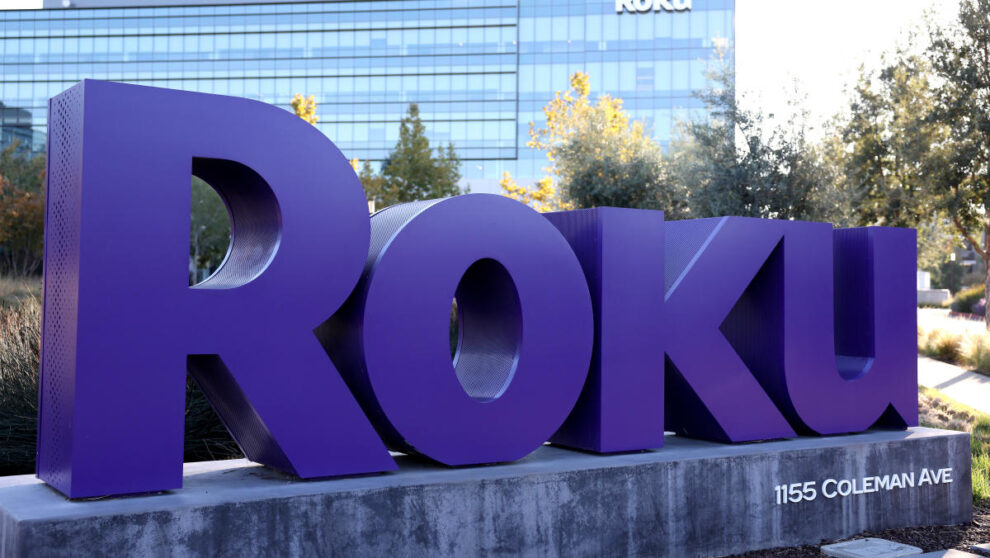Macquarie Senior Media Tech Analyst Tim Nollen joins Yahoo Finance Live to discuss Roku’s strategy and opportunities, Disney’s plans for Hulu, and sports streaming.
Video Transcript
– Let’s take a deep dive into Roku now that the company has announced its second round of layoffs in four months. Joining us now is Tim Nollen, Macquarie senior media tech analyst. Shares fell today, sir, counterintuitive from what we’ve come to expect. When we get layoffs, usually, we see that share price pop up a little bit because of the cuts. But we’re losing 4% on the day. Why?
TIM NOLLEN: Well, I don’t know. Yeah. You might think that on a cost savings announcement, the stock might rise. Now, Roku has been pretty clear from their earnings in the middle of February that they would be looking to contain costs this year. And they had previously announced job cuts. So I think the balance here is that I think investors recognize that Roku has a lot on its plate.
There is a lot that they should be investing in. I mean, this company is facing the operating system wars now, facing up against big competitors like Samsung and like Amazon Fire. And they’ve got a big international expansion plan, which has a long way to go. They haven’t gotten very far with it yet. They also have to make changes into their ad platform and how they serve and deliver ads.
So there’s a lot of potential upside if Roku can get it right. And maybe the stock is just reflecting the balance between if they’re cutting staff versus they need to be working on a lot of things very actively right now. Then where does that put the stock?
– Tim, how do you view Roku just as a standalone company here in the future, given the fact that so many of its competitors are bigger than they are right now versus the fact that maybe they could be an attractive acquisition target for some of those larger players?
TIM NOLLEN: Well, maybe on the last point I’ll just add that Roku– one of the advantages of Roku is its independence. There is no conflict with other TV network groups or fast services or any of the apps on its interface. Roku does not have a conflict with any of them. If somebody were to acquire Roku, you would immediately have a potential conflict. So the independence that Roku has always been one of its advantages.
I just think going back to what I was saying before, the company is facing now– it’s a very competitive market. But they’ve always done well in these competitive markets. I mean, Apple TV and Amazon Fire and Google Chromecast have always been major competitors for Roku’s streaming hardware. And they are still the leading connected TV platform in the US despite that.
The next trick is, can they expand internationally and do that effectively? So they don’t have the brand. They don’t have the market position internationally that they’ve had in the US. They’ve done well here. They’ve done well in Canada and Mexico. But there’s a long way to go in a lot of countries they haven’t yet entered. So I think that’s kind of step one.
And step two– don’t forget the real business of Roku is advertising. I mean, the devices give Roku the install base upon which they sell advertising through the apps and on the Roku channel to consumers that are on that platform. There are 70 million active accounts on Roku. The real growth is to grow the advertising.
That’s clearly in a cyclical soft spot right now, advertising is. And Roku, in addition to the cyclical weakness, has to focus really on how to become a more automated advertising business. There’s a lot of connected TV advertising money to move over. Roku has to understand how to grab that and how to grow into that.
– Is there a logical dance partner, someone that could use their assets?
TIM NOLLEN: I won’t name names. You named some on the prior segment. There are lots of companies that I suppose might have an interest in Roku. But, again, the independence that Roku offers to everybody using its platform– I’m talking the companies using its platform– as one of its advantages.
– Tim, let’s move over to Disney, another company that you cover here. Lots of questions just about the future of the streaming there at that company, what exactly that looks like. Let’s start it off with ESPN. What do you think the fate of ESPN looks like when you take into account some of Disney’s future plans with the streaming business?
TIM NOLLEN: Yeah. There’s a whole lot of bags of worms here in this question, ESPN as well as Hulu. Since Bob Iger came back as CEO of Disney in November, I think there’s been– a lot of new questions have emerged. One is a recurrence of a long-asked question by investors. What will Disney do with ESPN? I think Bob Iger has made pretty clear that ESPN is considered a core franchise within Disney and they want to own it and they want to find a way to convert it into a more active streaming service.
Of course, ESPN+ is a streaming service. It does not have the same content as the ESPN linear service. And we’ve begun to think there might be a couple of catalysts at play here that could accelerate the process of ESPN becoming more a truly OTT service. And that is, one, you’ve got the NBA rights renewal. That contract is due up at the end of the 2024-25 season. But these contracts usually get done a couple of years in advance.
So we don’t know. But I believe that the NBA national contract is being discussed right now. And for sure there’s got to be a big streaming component to that. In addition, you’ve got these regional sports networks. Sinclair Broadcasting just went bankrupt, or at least the Diamond Sports component of Sinclair has just gone bankrupt. And that represents half of the NBA and half of the Major League Baseball and half of the National Hockey League games across the country in those regional markets.
So there are a lot of legal questions here. There are a lot of logistical and strategic questions here. But we posit the view that what if ESPN+ were to take NBA national streaming rights as well as regional streaming rights, put it into a package, and offer a tier on top of the existing ESPN+ service, offer that out to NBA fans? I believe they could monetize that effectively with streaming subscriptions. Clearly, the advertising that would be supportive of that. And they could support the rights.
Doing so I believe could be profit making for them. It would certainly raise the question of what happens to the rest of the linear pay TV bundle if they’re going to be moving premium content from the NBA onto ESPN+. But this is the kind of thing that I think is going to happen. I don’t know if this exactly happens the way I just described. This is the kind of thing that’s going to come to sports streaming in any case. And I think ESPN has a leading position here.
– All right. We asked you about some intrigue with Roku. Got to get your thoughts on Needham’s Laura Martin, who says Apple would be worth 15% to 25% more if they buy Disney. Could something like that ever happen? How would it impact Disney?
TIM NOLLEN: Wow. The M&A questions today. I don’t know. I don’t want to wade into that specifically. But I would say I believe there is a lot of value in Disney. I believe it is the one traditional media company that has the best chance of transitioning to a streaming world successfully. And they’ve already done this with Disney+. They still have to shed the old linear business behind. But here’s one number for you on ESPN. ESPN pay TV subscribers have fallen from 99 million at the peak to I believe 74 million. That’s just the cord cutting, that traditional bundle falling down.
ESPN+ has 24 million subscribers. That’s almost exactly the same number. It’s not apples to apples. The content is different. The pricing is different. But that’s an indication of how I think Disney can translate from the old world into the new world. They’re already well along the path. And I think there is a lot of value within Disney that’s not being appreciated fully in the stock price. And who knows? There might be other companies out there that might see that value as well.
– That is plenty of intrigue there. We’ll take that, Tim. Appreciate it.











